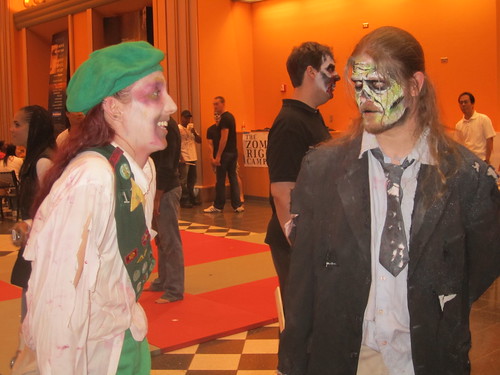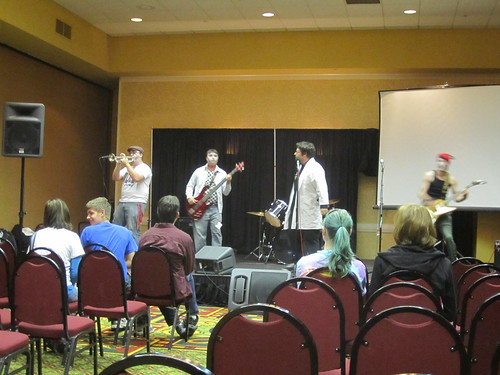Zombies and ‘Super Senses’
I’ve talked previously about how the Zombie Rights Movement could take inspiration, if not exactly tactical advice, from the world of comic book superheroes the ‘X-Men’. How perhaps the best method for those who are Different to change the minds of the general fearful mass of humanity might be to simply, and visibly, do good works on their behalf.
Only without the spandex costumes.. because Zombies, while sometimes quite different from Living people on a basic biological level, are ultimately just People too. The Undead aren’t *that* different, after all; it’s not really feasible or wise to try the world of costumed crimefighting when some charity fundraisers and the occasional Lurch are both more accessible and a lot safer.
However, those who don’t believe that Zombies *are* people sometimes feel the need to exaggerate the ability or Different-ness of the Differently Animated, to make the ‘threat’ seem graver or assuage their egos (because they are, in fact, threatened deep down by a fantasy)
Thus this piece from the ‘Zombie Research Society’:
As a Neuroscientist at the University of California, Berkeley and member of the Zombie Research Society board, Bradley Voytek, PhD knows what he’s talking about when it comes to both the human and undead brain. That’s why a recent post on his blog is so disturbing.
Voytek points out that ordinary people can tap into extraordinary sensory abilities often thought to be super human. We have the power to become living comic book heroes, like Riverside teen Ben Underwood who could ride a skateboard using echolocation with his own clicking sounds.
…
Zombies are widely believed to be relentlessly driven by one overwhelming desire: to find and eat the living. They don’t worry about an overdue car payment, or getting a promotion. They don’t worry about buying a new TV, or if their hair is out of place. They don’t even worry about avoiding a sharp tree branch, or advancing attack.
Ah yes, ‘widely believed’. Other things ‘widely believed’ in this world include the existence of Bigfoot, UFO abductions and the Loch Ness Monster.
The ZRS piece references a slightly longer blog post on the general issue of ‘super’ senses, which boils down to a hypothesis that attention, and the ability to focus properly, sharply limits the use of human sensory organs, which are far more sensitive than commonly believed. In other words, if a person focuses really hard, they can see a candle from an enormous distance, but they might miss the sounds of crickets nearby. There’s even a neat video to explain the effect:
However, as longtime ZRC readers, I’m sure you can spot the obvious flaw in this reasoning: perhaps super senses can be developed by excluding conscious thoughts and other attention-depriving activities. Perhaps if Zombies really were unthinking automatons they could be the hunters depicting in so much Anti-Zombie fiction.
But of course, they’re not. Zombies are people too, with the same hopes, fears, and yes, day to day distractions as the Living. Plus they’re not solely animated by the desire to eat you.
Zombies care about politics.
Zombies care about how they’re treated in the media.
Zombies even play music in Ska bands. Well, at least one Ska band, but several Zombies *in* that band.
My point is that, while it may be true that the Living and the Undead alike have the potential for ‘super’ senses, the same attention-sapping and life-enriching concerns that deprive the Living of the use of these senses most of the time affect the Differently Animated.
Because Zombies are People Too.





Comments